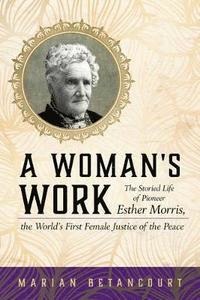
Liknande böcker
Tokens of Affection : The Letters of a Planter's Daughter in the Old South
Bok av Maria Bryan
This collection comprises all of the known letters written by Maria Bryan (1808-1844) of Mt. Zion, Georgia, to her sister Julia Bryan Cumming of Augusta. Spanning a period from the mid-1820s to the mid-1840s, the letters relate firsthand the daily affairs and concerns of a planter's daughter on a moderately successful plantation in Hancock County, the heart of what was then the greatest cotton-growing region in the world. Few such accounts exist, especially by women, of this period of southern history, when the region was flourishing as a cotton kingdom and sectional tensions had not yet dominated everyone's thoughts. A refined and remarkably well-educated woman, Maria Bryan began corresponding with her sister when she was sixteen years old, two weeks after Julia had married and moved seventy-five miles away to Augusta, at the time Georgia's third-largest city. As Carol K. Bleser points out in her introduction, Bryan travels, reads the popular books of the day, entertains visitors, and makes social calls. At the same time, however, notes Bleser, Bryan's letters belie popular notions about the privileged lives of "typical" planters' daughters in the antebellum South, for she also works at housekeeping, tends the sick at home and in the neighborhood, makes clothes for the family's slaves, and tutors younger siblings. Bryan's letters keep her sister abreast of local news and gossip (a preacher who can no longer hide that he is suffering from a venereal disease) and family rifts and reconciliations (a brother's apparently severe depression and consequent aimlessness in life and career). They also contain a number of references to the family's slaves. In one letter only, however, did she reveal any feelings about the institution itself. Writing in January 1827 that their overseer had punished her personal slave, Jenny, for not meeting her quota of spinning, Bryan told her sister, "It would have distressed you to see her face bloody and swelled. Oh how great an evil is slavery." Constituting a remarkable portrait of daily life in the Old South, these letters reveal a wealth of information, and attitudes about romance, courtship, marriage, family life, childbirth, child-rearing, friendship, religion, sickness, home remedies, death, books, fashion, travel, education, politics, and social events.







